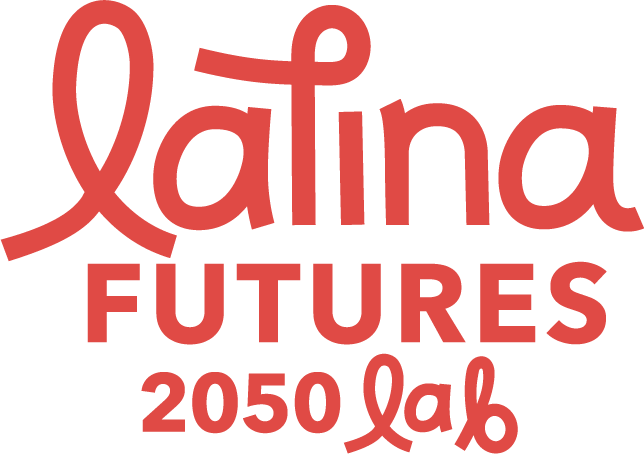
December 3, 2024
LIDERAMOS: Latina Leadership on a National Stage
By Paula Valle
The Midwest is undergoing a demographic transformation, driven largely by the growth and diversity of its Latino population. Latinos are increasingly shaping the region’s demographic, economic, and cultural landscape. Over the last 20 years, Midwest states that had not seen large numbers of Latinos settling there – such as Nebraska, Minnesota, Wisconsin, Iowa, Indiana and Ohio – have experienced triple digit population growth. Other states with established Latino enclaves also saw increases in their Latino populations even as the state’s overall population remained stagnant, like Illinois and Michigan. The direction and magnitude of the region’s population changes underscores the need to cultivate and propel cross-sector leadership that ensures historic and emerging Latino communities thrive.
Against this dynamic backdrop, the 6th Annual LIDERAMOS National Symposium convened Latina leaders in Milwaukee for the Poderosa Panel: Holding the Line in the Face of a Chilling Effect on DEI. Held just 10 days before a consequential presidential election, with three Rust Belt states positioned as key battlegrounds, this 90-minute discussion brought together trailblazers from law, philanthropy, advocacy, and community health to address the far-reaching consequences of the U.S. Supreme Court’s decision in Students for Fair Admissions and strategies to safeguard progress in diversity, equity, and inclusion (DEI).

Moderated by Sonja Diaz, Co-Founder of the Latina Futures 2050 Lab, the panel explored how Latina leaders in the Midwest are uniquely positioned to resist the erosion of race-conscious policies. Recent legal challenges, such as the ongoing Fearless Fund case in the Fifth Circuit, highlight how moneyed interests are strategically using the courts to undermine affirmative action and equal opportunity across various sectors. “This isn’t just about college admissions; it’s a generational plan to unravel equity and shared prosperity. Latina leadership is key to holding the line and pushing forward,” Diaz asserted.
The panelists offered insights rooted in their expertise, illustrating how Latinas are uniquely equipped to lead in a challenging landscape. Rebeca M. López, an employment law attorney and appointee of Wisconsin Governor Tony Evers to the Judicial Selection Advisory Committee, emphasized the importance of workplace policies that embrace equity while navigating heightened scrutiny. “Properly crafted Equal Employment Opportunity and DEI policies are critical now,” López explained. She added that organizations must tread carefully to remain mission-aligned and compliant, avoiding the growing risks of missteps in an increasingly litigious environment.
Ciciley (CC) Moore, Director, Office of the President of the W.K. Kellogg Foundation, echoed this sentiment, describing how fear of legal challenges has caused many organizations to second-guess their equity efforts. “The chilling effect is real. Many organizations are second-guessing their equity work simply to avoid litigation,” she said. Moore emphasized the role of philanthropy in sustaining DEI work, stressing that mission-aligned investments are essential for countering regression and providing a foundation for continued progress. This focus aligns closely with the W.K. Kellogg Foundation’s mission to support thriving children, families, and equitable communities, a commitment underscored by the fact that nearly a quarter of the nation’s youth—America’s future workers, innovators, and leaders—are Latino.

Building on this, Marlen J. Mendoza of the Latino Policy Forum highlighted the critical role of data-driven advocacy in advancing legislative priorities. By driving policy change, the Forum aims to improve education outcomes, expand access to affordable housing, promote fair immigration policies, and strengthen community leadership for Latinos in Illinois., “Advancing legislative priorities like immigration reform and affordable housing requires both strong data and unified advocacy,” she stated, urging coalitions to address the unique needs of Latino populations across the Midwest. Elevating Latino voices is essential for advancing common-sense policy solutions that drive Illinois and the Midwest toward a more inclusive and equitable future.
Maria Socorro Pesqueira, president of the Healthy Communities Foundation, brought attention to the mental health challenges Latina leaders face as they tackle systemic issues. As part of her work, she has consistently championed mission-alignment as a best practice for philanthropy, particularly in making tailored program investments for historically excluded communities. In her remarks, she called for philanthropy to offer more than just financial support, urging it to “provide cover for our partners who are under attack” and to sustain grassroots efforts that help ensure resilience among leaders and their communities. Through this approach, she believes philanthropy can better support efforts that address the specific needs of marginalized groups, helping them overcome barriers and create lasting, meaningful change.



